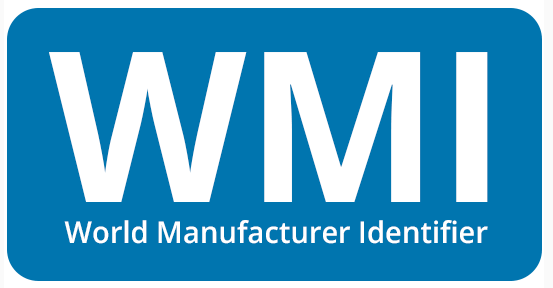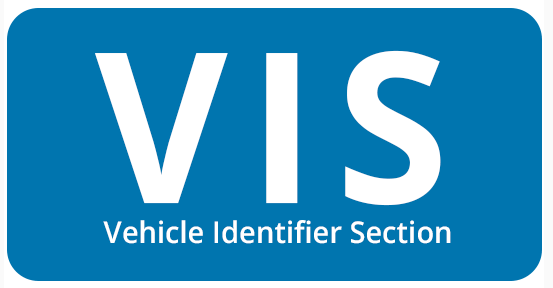Decode any VIN in seconds. Powered by direct OEM and authorized partner specifications, FAXVIN normalizes and validates the data to return up to ~120 attributes – model year and plant, engine and transmission, trim/options, dimensions, safety equipment, and recalls – for cars, trucks, motorcycles, ATVs, RVs, and more. It's free and requires no signup, our datasets refresh frequently, and if a VIN is mistyped we provide character-level hints.
What Is a VIN (Vehicle Identification Number)?
Every car has a unique 17-character code called a VIN or Vehicle Identification Number. The VIN tells you where and when your car was made, who made it, and what features and options it has. You can also use the VIN to check the history of any used car you might want to buy.
The VIN looks something like this: 1C6SRFFT8LN218916. The International Organization for Standardization (ISO) developed this format in 1981, and it is applicable to all cars today. Each digit can be a number from zero to nine or any letter of the alphabet except "I", "O", or "Q" to avoid confusion with the numbers one and zero.
To make sense of the VIN, you can break it down into different parts:
1C6-SRFFT-8-L-N-218916. We'll explain what each of these parts means below.
VIN Examples
Here are some examples of the VIN from different types of automobiles and models:
- 1C6SRFFT8LN218916
- 2T3R1RFV8LC123249
- 5UXCR6C07N9N07366
- 3C6MR4AJ0NG410085
- 1FMCU0G65NUB81782
- WAUEAAF45NN011294
- WDDSJ4EB1JN510150
- 5YFBURHE8GP549799
Where to Find the VIN
Locate the VIN on the vehicle and in its documents. Before buying, make sure the VIN on the car matches all paperwork and check for signs of tampering. A mismatch or altered stamp can indicate a stolen or salvaged vehicle.
On the Vehicle
- Dashboard: Driver's side, visible through the windshield.
- Driver's door jamb: Federal Safety Certification label.
- Spare-tire well: Under the spare in the trunk.
- Front frame/under hood: Often near the washer reservoir, typically on the driver's side.

Exact placement varies by make, model year, trim, and regional requirements; aftermarket modifications can also affect location.
VIN on Paperwork
- Title: Listed on the title's header with make/model/body type.
- Registration card: Shown on the front of the card.
- Insurance documents: Appears on the policy and ID card.
- Owner's manual: Often noted by the manufacturer.
- Service/repair records: Used for ordering parts and documenting work.
- Police reports: Recorded after thefts or accidents.
What Does Each Digit Mean in a VIN?
You can learn a lot about an automobile from its VIN. The first digit tells you which country made the model, while the next two digits indicate the manufacturer and unit type. Details such as the brand and size are encoded in the next five digits.
The ninth digit is a security code that verifies whether the maker authorized the Vehicle Identification Number. The tenth digit indicates the model year of the vehicle. And the eleventh digit tells you which plant assembled the vehicle. The last six digits are the serial number.

Here is a table that will allow you to identify specific information encoded in each digit:
| VIN Digit | Meaning | VIN Digit | Meaning | |
|---|---|---|---|---|
| 1st | Country | 10th | Model Year | |
| 2nd | Region / Maker | 11th | Assembly Plant | |
| 3rd | Vehicle Type | 12th | Sequential Number | |
| 4th | Vehicle Attributes | 13th | Sequential Number | |
| 5th | Vehicle Attributes | 14th | Sequential Number | |
| 6th | Vehicle Attributes | 15th | Sequential Number | |
| 7th | Vehicle Attributes | 16th | Sequential Number | |
| 8th | Vehicle Attributes | 17th | Sequential Number | |
| 9th | Check digit |
World Manufacturer Identifier (WMI)

The first three characters of a VIN form the WMI. They encode region/country, manufacturer, and vehicle class/type. For low-volume makers (fewer than 500 units/year), the third character is 9 and the next three VIN characters extend the identifier.
- Country/Region: The first character indicates origin (A–Z). For example, AA–AH denotes South Africa.
- Manufacturer: The full three-character WMI identifies the maker (e.g., 1FD = Ford Motor Company, USA).
- Vehicle Type: The third character helps specify class (e.g., 1G1 = Chevrolet passenger car).
WMI Codes: Brand & Country
Selected, high-confidence WMI mappings. Use this as a quick guide; full assignments are maintained under SAE/ISO rules and can vary by vehicle class and plant.
| WMI | Manufacturer | Country |
|---|---|---|
| WB1 WBA WBS WBX | BMW | GERMANY |
| 2CN 2G1 2GC 2GN | Chevrolet | CANADA |
| 1G1 1GB 1GC 1GN | Chevrolet | UNITED STATES |
| 2B3 2B6 2C4 2D4 2D8 | Dodge | CANADA |
| 1B3 1B4 1B7 1D4 1D8 | Dodge | UNITED STATES |
| 1F6 1FA 1FB 1FC 1FD 1FM 1FT 1ZV | Ford | UNITED STATES |
| WMI | Manufacturer | Country |
|---|---|---|
| JH2 JH3 JHL JHM | Honda | JAPAN |
| 19X 1HF 1HG 478 5FN 5J6 | Honda | UNITED STATES |
| JT6 JT8 JTH JTJ | Lexus | JAPAN |
| WDA WDB WDC WDD | Mercedes-Benz | GERMANY |
| JT2 JT3 JT4 JTD JTE JTM JTN | Toyota | JAPAN |
| 1NX 4T1 4T3 4T4 4TA 5TB 5TD 5TE 5TF 5YF | Toyota | UNITED STATES |
Vehicle Descriptor Section (VDS)

Positions 4–9 are the VDS. Typically, 4–8 encode key attributes; the 9th is the check digit used to validate the VIN.
- Vehicle attributes: Engine, body style, restraint system.
- Check digit (9th): Calculated from all VIN characters to validate the VIN.
Vehicle Identifier Section (VIS)

Positions 10–17 are the VIS and provide vehicle-specific details:
- Year (10th): Model year per the standard VIN-to-Year chart (e.g., A = 1980, B = 1981).
- Assembly plant (11th): Plant code (set varies by manufacturer).
- Sequential number (12–17): Manufacturer-assigned serial number.
Older VINs (Before 1981)
Before 1981, VINs were not standardized and often had 11–13 characters instead of today's 17. They can still reveal key details, but decoding usually requires manufacturer records or specialist references–especially for classic and vintage vehicles.
How Is a VIN Used?
The VIN serves as a persistent identifier throughout a vehicle's life:
- Mechanics: Identify engine/trim and source correct parts; match service bulletins.
- Insurance companies: Verify year/make/model/trim and safety equipment for underwriting and claims.
- Manufacturers: Track campaigns and process safety recalls.
- Law enforcement: Record accidents, thefts, and recoveries.
- DMV/BMV: Register vehicles, issue titles and license plates, manage inspections.
- Buyers: Use a VIN decoder/lookup to confirm specs and obtain a history report before purchase to avoid cars with prior accidents, damage, or odometer issues.
VIN Decoder Examples
The following example shows what you can see with our free VIN decoder:
| VIN | Year | Manufacturer | Model | Engine | Trim |
|---|---|---|---|---|---|
| 1FTFW1CT5DFC10312 | 2013 | Ford | F-150 | 3.5L V6 TURBO | FX2 SuperCrew 5.5-ft. Bed 2WD |
| 1GC5CZEG0F0017106 | 2015 | Chevrolet | Silverado | 6.0 Li | 3500 LT |
| 4T1BG28K81U790207 | 2001 | Toyota | Camry | 2.2L L4 DOHC 16V | CE |
| WBA5B3C50GG252337 | 2016 | BMW | 5-Series | 3.0L L6 DOHC 24V | 535i xDrive |
| 7SAYGAEE7PF684052 | 2023 | Tesla | Model Y | ELECTRIC | Long Range AWD |
What You Get from the FAXVIN VIN Decoder
Below are the core specs we typically return on a successful VIN lookup:
- Model year;
- Make;
- Model;
- Trim;
- Body style;
- Assembly country & plant code;
- GVWR class;
- Engine specs;
- Fuel type;
- Transmission;
- Driveline;
- Fuel economy (city/highway);
- Fuel tank capacity;
- Maximum towing capacity;
- Curb weight;
- Dimensions (length/width/height);
- Wheelbase;
- Ground clearance;
- Tire size (OE);
- Brakes (front/rear);
- Suspension (front/rear);
- Seating capacity;
- Warranty terms;
- MSRP;
- Factory colors & interior trims.
Where Our VIN Decoder Data Comes From
Our VIN decoder is powered by manufacturer-supplied specification data. We obtain build information directly from automakers and their authorized data partners, then standardize, validate, and map it to a clear, human-readable format–available to you free of charge.
- Collection: OEM catalogs, homologation files, service/parts databases, and technical bulletins across regions and model years.
- Normalization: Unifying option codes, engines, body styles, restraint systems, and plant codes; handling mid-year and regional variations.
- Validation: Check-digit verification (9th character), sample-VIN spot checks, and automated regression tests.
- Delivery: Instant VIN lookup/decoder output with concise labels – no sign-up required.
Which Vehicles Can Be Decoded by VIN?
VINs have been standardized for vehicles manufactured since 1981 in the USA, but they do not apply to all types of units. They are mostly assigned to the following automobile types:
- Car;
- SUV;
- Pickup;
- Motorcycle;
- VAN;
- Commercial Truck;
- RV and Motorhome;
- Trailer and Camper;
- Moped and Scooter;
- Buses;
- ATV.
FAXVIN VIN Decoder vs. Other Decoders
Choose FAXVIN when you need instant, manufacturer-accurate decoding with one of the industry's highest levels of detail (up to ~120 attributes). Our pipeline blends direct OEM/authorized data relationships, rigorous normalization, and automated validation – so your VIN lookup is fast, consistent, and ready for production use.
| Key criteria | FAXVIN | Competitors | Manual processing |
|---|---|---|---|
| Primary Data Origin | OEM / authorized partner specifications; multi-source merge | Secondary/aggregated datasets; limited first-party data | Public lists, forums, ad-hoc PDFs |
| Coverage | US, CA, EU; global WMIs | Regional gaps common | Depends on researcher's sources |
| Attribute Depth | Up to ~120 decoded attributes | Fewer fields; generic trims | Limited detail |
| Update Frequency | Daily/weekly | Weekly/monthly | Ad-hoc; time-intensive |
| Lookup Latency | Instant; CDN-accelerated | Seconds; may queue | Minutes–hours |
| Validation & Correction | Check-digit + sanitization; underlines error char(s) with fix hints |
Basic format check; generic "invalid VIN" | Manual math – possible errors |
| Free Single Lookup | Full free decoder | Often gated or count-limited | N/A |
| Exports & Sharing | PDF; copy/share link | Rare/limited | N/A |
How to Do a VIN Lookup
Use FAXVIN to decode a VIN and view free vehicle specifications in a few quick steps:
- Find the VIN: Locate the 17-character code on the dashboard (driver's side), door jamb, title, registration, or insurance documents.
- Enter the VIN: Type it into the VIN input box on this page.
- Click "Decode VIN": Start the lookup to retrieve free basic specs instantly.
- Review free results: See make, model, model year, trim, engine, body style, and assembly plant.
- Optional – full history: Upgrade to a comprehensive report for title brands, accident records, mileage/odometer entries, theft checks, liens, and more.
Start a free VIN lookup above to confirm core specs before you buy.
Additional Resources for Drivers
Here are additional resources that you can use to learn more about pre-owned cars and related VIN lookup information:
- ISO/DIS 3779 – VIN: Content and structure
- 49 CFR Part 565 – Vehicle Identification Number (VIN) Requirements (eCFR)
- Vehicle Identification Number – Structure, WMI, VDS, VIS & Check Digit
- State DMV Websites Directory
Frequently Asked Questions
Can I Run a VIN Decoder for Free?
What Documents Contain the VIN?
Can a VIN Number Be Changed?
Is It Safe to Share My VIN?
Are All VINs Unique?
What if my VIN has fewer than 17 characters?
Was this article helpful?
